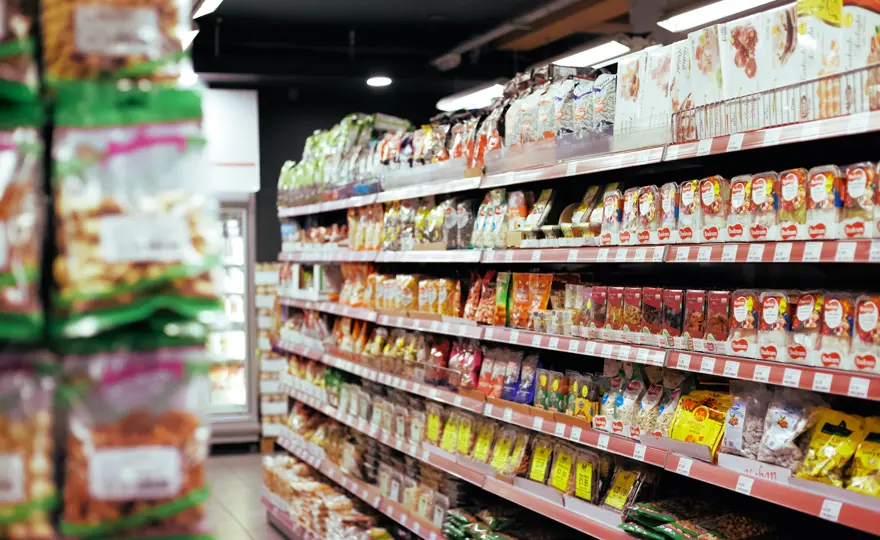ClientEarth Communications
31st August 2021


Public concern about plastic pollution is at an all-time high, yet cucumbers wrapped in plastic and pre-peeled oranges in plastic boxes are still common occurrences in our supermarkets. So what’s the problem with plastics and what are supermarkets doing about it?
Get updates on our plastics work
From clothing to food packaging to phones, plastic is everywhere. That’s a problem, and not only in terms of waste. There are also consequences for our health and our climate.
As a consumer, it can seem virtually impossible to escape plastics, and nowhere more so than in supermarkets. Plastic packaging accounts for 70% of plastic waste in the UK – most pieces of packaging are used only once and then thrown away.
The problem in supermarkets is not only plastic bags. Think about water bottles, strawberry punnets, sweet and chocolate wrappers or cereal and pasta boxes with miniature plastic windows. There’s even plastics lining in paper bags and cups.
Single-use plastic items encourage throwaway culture. Our reliance on these plastics means we are accumulating waste at a staggering rate. And recycling is not a cure-all: only around 9% of plastic waste ever generated has been recycled – with the rest incinerated, piling up in the landfill or leaking into the environment.
Consumers rightly want their supermarkets to do more. Only 7% of people are not concerned about plastic packaging. Most believe that supermarkets have not made enough effort to reduce plastic in the last years. And they may be right.
Overall, supermarkets still aren’t doing enough to reduce plastic.
According to Greenpeace UK and the Environmental Investigation Agency (EIA), UK supermarkets produced 896,853 tonnes of plastic packaging in 2019 – roughly the equivalent of the weight of 90 Eiffel Towers. This is only a 2% decrease from 2018 and with Covid-19, we can expect 2020 numbers may be on the rise again.
In order to significantly reduce throwaway plastic, supermarkets need to eliminate unnecessary packaging, ramp up ambition on reusable packaging, and implement refill stations in-store.
Consumers can continue to pressure brands and supermarkets to reduce plastic packaging. Already, nearly half of consumers aged 18-34 say they have changed food brands based on packaging.
Most supermarket chains stock both ‘own-brand’ products and branded ones – which are often manufactured by huge consumer goods companies, also known as fast-moving consumer goods (FMCG) companies. Together, these corporations hold the power and the purse string to change the systems behind plastic pollution. They should be implementing the necessary changes – as their investors will be increasingly asking them to do.
Investors and shareholders – who own shares in these companies – can and should use their influence to demand changes, in the same way that more and more shareholders are urging fossil fuel companies to adopt carbon emissions reduction targets.
This is not just a question of doing right by the planet. In the fight to change the future of our environment, this business model can only survive so long, and how supermarkets and major brands deal with the emerging plastics crisis will have concrete effects for their bottom lines and shareholder returns.